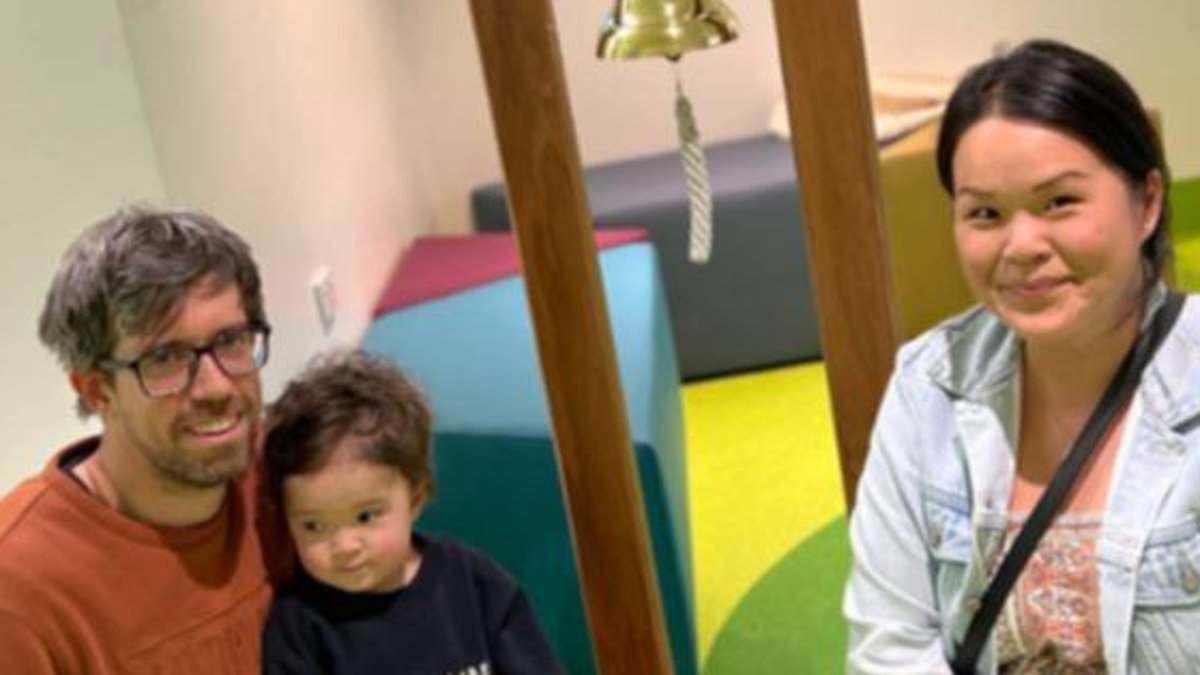The mother of a young boy has revealed how bruising on her son’s eyelid that led to flu-like symptoms turned out to be a rare form of cancer.
Four-year-old Luca Kitson, who lives with his family in Bibra Lake in Perth’s south-west, was diagnosed with neuroblastoma just before his second birthday in
Luca was out playing in the the family’s backyard while they were living in the mining town of Kalgoorlie when he slipped and fell on some gravel.
He suffered some minor scars and a bump on his forehead, but his mum Diana noticed ‘unusual’ bruising on his right eyelid a few days later.
She became even more concerned after dark patches emerged on Luca’s eyelids, he developed a fever, began to vomit and lost his appetite.
His father Jeff took him to the GP and Luca was given antibiotics, but a visit to the hospital the next day confirmed the mother-of-three’s worst fears.
Pediatricians found tumours in Luca’s kidney and several other parts of his body.
‘My heart sank. I just remembered at that point an out-of-body experience,’ Ms Kitson told 7News.
Luca and his mum were flown to Perth Children’s Hospital by the Royal Flying Doctor Service where tests revealed Luca had high-risk neuroblastoma, a rare cancer which develops in the nerve tissue.
Further scans also confirmed tumours had grown at the base of Luca’s skull and the abnormal tissue growth had spread to his optic nerve, which caused blindness in his right eye.
‘I remember the oncologist saying ‘cancer does not discriminate,’ Ms Kitson said.
Luca underwent 15 months of gruelling treatment including chemotherapy, stem cell transplants, immunotherapy and radiotherapy.
The family were forced to sell their home in Kalgoorlie and relocate to Perth to support Luca through his treatment.
Ms Kitson said the life changing diagnosis had been difficult.
‘Ultimately, I don’t think I could have gone through this without the nurses [in] the ward. They just understood, they made us feel safe,’ Ms Kitson said.
Luca’s family is now hoping his cancer does not relapse and that the little boy makes it through five years of post-treatment.
Cancer statistics commonly use a five-year survival rate to indicate when a patient no longer has the disease.
Around 40 children are diagnosed with neuroblastoma in every year and the overall survival rate is 76 per cent.
High-risk neuroblastoma has a cure rate of just 50 cent.
Donations can be made to the Perth Children’s Hospital in the following link.
